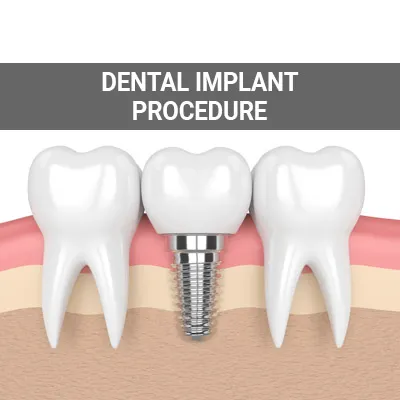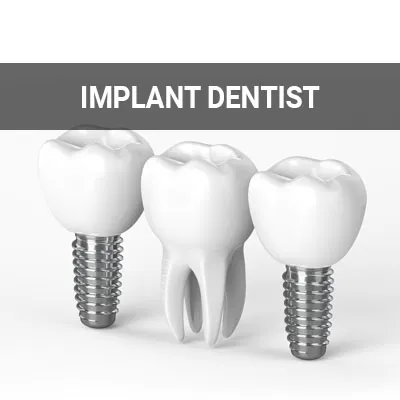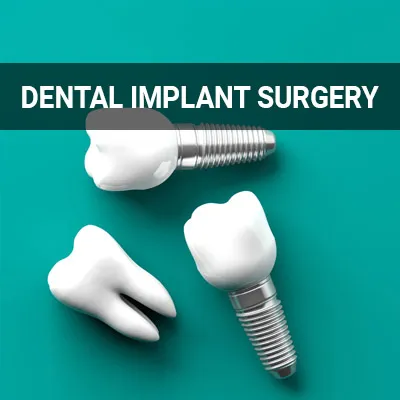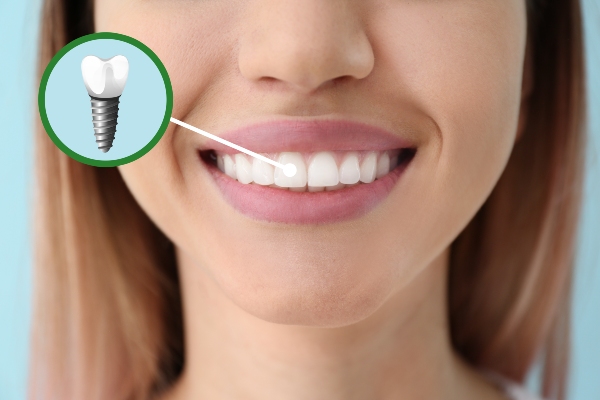Post-Op Care for Dental Implants Los Angeles, CA
Dental implant placement is a surgical procedure done to replace missing teeth. Post-operative care is necessary to ensure proper and seamless healing and recovery. A dentist can provide you with the necessary instructions to prevent complications and alleviate symptoms often associated with the procedure.
Post-op care instructions are provided by Dr. Robert B Tamaki, DDS in Los Angeles and the surrounding area. Every patient is unique, so some of the instructions below may not apply to your unique situation. If you need further clarification, call our office today at (310) 402-0156.
Common Post Operative Symptoms
The first 48 hours after the dental implant procedure are usually the most uncomfortable. Patients may experience pain, swelling, nausea, and slight bleeding. Most patients are more comfortable by the third day. Though there may still be some swelling, patients can usually start to eat normally by then. The rest of post-operative period should be a gradual but consistent improvement. If there are no improvements, patients should call the dentist office immediately.
Like with any other surgical procedure, patients may notice certain symptoms after dental implant placement — either immediately or a few days later. The key is to follow post-op instructions to ensure a safe recovery. Common symptoms include:
- Bleeding
- Nausea
- Pain
- Swelling
The effect of pain meds is different among patients. If the med does not provide substantial relief immediately, patients can try using it with an analgesic, such as ibuprofen or aspirin. The pain is usually at its peak in the first six hours after the procedure; after that, the pain should reduce considerably.
“The first 48 hours after the dental implant procedure are usually the most uncomfortable.”
Post Op Care Immediately After the Procedure
Patients must avoid disturbing the implant site to assist healing, resisting the urge to pull the lips to check the area continuously. The dentist will place sutures to maintain gum integrity. If the sutures are not self-dissolving, they should only be taken out by the dentist.
The dentist may place a healing abutment or cap over the implant for osseointegration. Qualifying patients may also get a temporary crown placed over the implant. It is vital to avoid chewing on the cap or temporary crown to prevent the implant from loosening.
Avoid rigorous exercise, bending, or lifting for at least three to four days after the procedure, as any strenuous activity may cause prolonged bleeding, pain, and swelling. The best practice is to rest in bed for the remainder of the day. Additionally, be cautious when standing, as you may become lightheaded.
“Avoid rigorous exercise, bending, or lifting for at least three to four days after the procedure, as any strenuous activity may cause prolonged bleeding, pain, and swelling.”
Post-op Follow-up Appointments
Your dentist should schedule one or more follow-up appointments after the day of surgery. You must attend all of these appointments. The number of appointments and the type of aftercare applied will depend on the treatment plan agreed upon by you and your provider.
Dental implants must be checked on regularly because there are so many elements to monitor. First, the dentist must check to ensure the implant is attaching to the jawbone properly and that there is no inflammation or signs of infection. Also, there is a slightly higher risk of gum disease in those with dental implants, leading to implant failure, among other problems. Your dentist will want to catch it early to prevent it from becoming a more serious issue.
“Dental implants must be checked or regularly because there are so many elements to monitor.”
Check out what others are saying about our dental services on Yelp: Post-Op Care for Dental Implants in Los Angeles, CA
How to Make a Quick Recovery and Return to a Regular Routine
If patients are looking to speed up the recovery process, there are some things not to do. Do not drink through a straw as the suction could irritate the wound and slow recovery. Smoking can slow healing by depriving your body of vital oxygen needed for recovery. Other vices to avoid include caffeine and alcohol. Drink water instead because staying hydrated will speed recovery.
Besides practicing good oral hygiene, there are a few things one can do to aid in recovery. Patients can use ice packs to help reduce swelling. By day two and after, saltwater rinses will help keep bacteria away.
“Besides practicing good oral hygiene, there are a few things one can do to aid in recovery.”
Questions Answered on This Page
Q. How many follow-up appointments will you need post-op?
Q. Is there anything patients can do to recover faster?
Q. What are some common symptoms after dental implant placement?
Q. How should I take care of myself immediately after the dental implant procedure?
People Also Ask
Q. What are the benefits of dental implants?
Q. Do missing or crowded teeth affect dental implant candidacy?
Q. What happens during the initial consultation?
Q. What can patients do to reduce their anxiety about receiving a dental implant?
Lifestyle Changes
The recovery process typically involves several weeks of dietary restrictions, lifestyle, and oral hygiene changes.
Dietary Restrictions
The dentist provides the patient with specific instructions on foods and drinks to avoid during recovery. Nothing the patient consumes should be extremely hot or cold. Keep in mind that oral infection risk is higher after implant placement, so limiting foods and beverages high in sugar is essential. Foods that are easy to chew can include oatmeal, eggs, soup, and mash potatoes. Drinking water throughout the day is helpful as well.
Lifestyle Changes
It is natural to experience discomfort for the first few weeks of post-op care. Some patients may prefer to take a day or two off work while they recover. Most importantly, avoid activities that may result in a blow to the face (sports, weight lifting, outdoor activities) during the recovery process.
Oral Hygiene Routine
As mentioned, the risk of infection is higher during recovery, so a proper oral hygiene routine is essential. Be certain to brush gently several times a day and use mouthwash regularly, along with any other specific recommendations provided by the dentist. Resources such as WebMD's Oral Care Guide may provide useful information as well.
“Keep in mind that oral infection risk is higher after implant placement, so limiting foods and beverages high in sugar is essential.”
Frequently Asked Questions
Q. When will it be safe for me to return to work after my dental implant procedure?
A. You can expect any swelling and soreness to last for three to five days; therefore, it is advisable to undergo surgery towards the week's end, so you can take a work break to recover. Generally, if you had the procedure on a Thursday, you can expect to return to work by Tuesday.
Q. Is there anything that can hinder the post-op recovery process?
A. Patients with uncontrolled diabetes may have complications with recovery. Patients who smoke may also be at increased risk of infection and hindered healing. Talk to your dentist about any preexisting conditions that may affect recovery.
Q. What is post-operative care like after getting the final tooth?
A. The invasive part of the procedure occurs during implant placement. Once the jaw heals around the implant, attaching the final tooth is a lot easier. Aside from some minor gum sensitivity, which can be managed with ibuprofen, there is no significant recovery process.
Q. How can I avoid infection after my dental implants procedure?
A. Keep your mouth clean whenever possible, beginning the day after surgery. Brush with a soft-bristled toothbrush and fluoridated toothpaste after meals and before bedtime. Stop any bleeding by applying gauze to the treatment area. Finally, do not rinse your mouth directly after surgery.
Dental Implant Terminology
Call Us Today
We enjoy helping our dental implant patients through every treatment stage, from the initial consultation to post-operative care. Call us at 310-402-0156 today to schedule a visit with us and learn more about the treatment and post-operative care process for dental implants.
Helpful Related Links
- American Dental Association (ADA). Glossary of Dental Clinical Terms. 2024
- American Academy of Cosmetic Dentistry® (AACD). Home Page. 2024
- WebMD. WebMD’s Oral Care Guide. 2024
About our business, license, and website security
- Dr. Robert B Tamaki, DDS was established in 1985.
- We accept the following payment methods: Cash, CareCredit, Check, MasterCard, and Visa
- We serve patients from the following counties: Los Angeles County
- We serve patients from the following cities: Los Angeles, Santa Monica, Venice, Marina Del Rey, Redondo Beach, Hermosa Beach, Manhattan Beach, and Westchester
- CA (License #DDO-33386). View License Information and Specifics
- National Provider Identifier Database (1568559011). View NPI Registry Information
- Healthgrades. View Background Information and Reviews
- Norton Safe Web. View Details
- Trend Micro Site Safety Center. View Details
Back to top of Post-Op Care for Dental Implants











